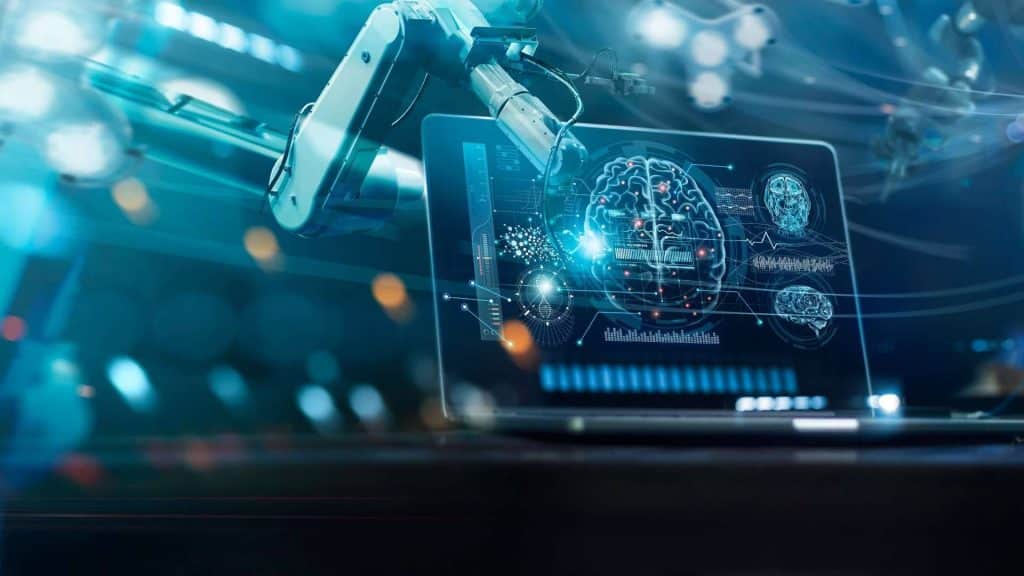In 2025, the landscape of artificial intelligence (AI) is undergoing a major transformation with the emergence of Agentic AI. Unlike traditional AI, which operates under fixed rules or responds only to predefined inputs, Agentic AI introduces autonomous decision-making capabilities. These systems act as independent agents with specific goals, capable of learning, adapting, and executing tasks without constant human supervision. The rise of Agentic AI signals a new era in technological innovation, with profound implications for industries ranging from healthcare to finance, manufacturing, and transportation.
The concept of Agentic AI is increasingly capturing attention among technology experts, business leaders, and policymakers. Its potential to improve efficiency, enhance decision-making, and drive innovation has made it one of the hottest topics in technology today. In this article, we will explore what Agentic AI is, how it is being applied across industries, the challenges it presents, and what the future holds for this transformative technology.

What Is Agentic AI?
Agentic AI refers to artificial intelligence systems designed to perform tasks autonomously, make decisions, and adapt to achieve specific objectives. Unlike conventional AI systems, which are reactive, Agentic AI can proactively analyze situations and determine the best course of action. Its key characteristics include:
- Autonomous Decision-Making: Agentic AI can process data, evaluate options, and make decisions independently, reducing reliance on human intervention.
- Goal-Oriented Behavior: The AI operates with clearly defined objectives, optimizing its actions to achieve desired outcomes efficiently.
- Learning and Adaptation: Through machine learning algorithms, Agentic AI systems continuously improve their performance by learning from experience and environmental feedback.
These features enable Agentic AI to handle complex, dynamic tasks in ways that traditional AI cannot, making it particularly valuable in high-stakes or fast-changing environments.
Factors Driving the Rise of Agentic AI
The adoption of Agentic AI has accelerated in 2025 due to several key factors:
- Advancements in Machine Learning: Breakthroughs in deep learning and reinforcement learning allow AI to recognize complex patterns and make informed decisions in real time. These methods enable AI agents to learn optimal strategies over time and adapt to new challenges.
- Increased Computational Power: The widespread availability of high-performance computing, including GPUs and AI-specific hardware, allows AI systems to process massive datasets quickly, making sophisticated models feasible and scalable.
- Proliferation of Data: The sheer volume of data generated from sensors, IoT devices, social media, and enterprise systems provides the raw material needed for Agentic AI to learn, predict outcomes, and make decisions.
- Industry Demand for Efficiency: Organizations across sectors are seeking solutions that optimize operations, reduce errors, and increase productivity. Agentic AI fulfills these needs by autonomously handling repetitive or complex tasks.
- Emerging Regulatory Standards: Governments and industry groups are developing frameworks that encourage responsible AI deployment, giving businesses confidence to adopt Agentic AI solutions.
These factors collectively make 2025 a pivotal year for the proliferation of autonomous AI systems across industries.
Applications of Agentic AI
Agentic AI is already being applied in various sectors, with transformative effects. Below are some of the most notable applications:
Healthcare
In healthcare, Agentic AI is redefining patient care and clinical operations. Applications include:
- Personalized Treatment Plans: AI systems analyze patient records, genetic information, and lifestyle data to recommend customized treatment strategies. These plans can improve outcomes by tailoring interventions to each patient’s unique profile.
- Predictive Diagnostics: Agentic AI identifies early warning signs of disease by detecting patterns in medical imaging, lab results, or wearable device data. This allows doctors to intervene before conditions worsen.
- Robotic Surgery: Autonomous surgical systems can perform precise, minimally invasive procedures, reducing recovery time and surgical complications. These robots learn from thousands of past procedures, continually refining their techniques.
The integration of Agentic AI in healthcare not only improves patient outcomes but also reduces administrative burdens and operational costs for hospitals and clinics.
Finance
The finance sector benefits from Agentic AI in multiple ways:
- Algorithmic Trading: AI-driven trading systems analyze market trends, news, and economic indicators to make split-second investment decisions. These systems can outperform traditional strategies by identifying opportunities that human traders might miss.
- Fraud Detection: Agentic AI monitors transactions in real time, flagging anomalies that indicate potential fraud. It continuously learns from new patterns, enhancing security measures.
- Customer Service: AI-powered virtual assistants provide clients with personalized financial advice, answer queries instantly, and help manage accounts efficiently.
By automating high-volume tasks and improving decision-making accuracy, Agentic AI enhances both operational efficiency and customer experience in the finance sector.
Manufacturing
Manufacturers are leveraging Agentic AI to streamline production and reduce costs:
- Predictive Maintenance: AI monitors machinery for signs of wear or malfunction and schedules maintenance before breakdowns occur. This minimizes downtime and prolongs equipment lifespan.
- Supply Chain Optimization: Agentic AI analyzes demand forecasts, inventory levels, and logistics to optimize supply chain operations, ensuring timely deliveries and cost savings.
- Quality Control: Machine vision systems inspect products at every stage of production, identifying defects and maintaining high-quality standards consistently.
These innovations allow manufacturers to produce more efficiently while maintaining higher quality and reducing waste.
Transportation
Agentic AI is revolutionizing the transportation industry:
- Autonomous Vehicles: Self-driving cars and trucks navigate roads safely using AI that can react to changing conditions in real time. These systems improve traffic safety and efficiency.
- Route Optimization: AI algorithms determine the most efficient routes for delivery vehicles, reducing fuel consumption and transit times.
- Fleet Management: Agentic AI monitors vehicle performance, schedules maintenance, and predicts component failures to extend fleet lifespan and reduce costs.
The adoption of AI-driven systems in transportation promises significant improvements in safety, cost-efficiency, and operational scalability.
Customer Service
Customer service experiences are enhanced by Agentic AI through:
- AI Chatbots: Instantaneous responses to inquiries improve customer satisfaction and reduce wait times.
- Sentiment Analysis: AI evaluates customer feedback and identifies trends, enabling organizations to proactively improve products and services.
- Personalized Recommendations: By analyzing customer behavior, AI can suggest relevant products or services, improving engagement and sales.
These AI-driven solutions allow companies to scale customer support while maintaining personalized interactions.
Challenges and Ethical Considerations
Despite its transformative potential, Agentic AI presents several challenges:
- Job Displacement: Automation of complex tasks could lead to job losses in some sectors, requiring reskilling initiatives and workforce planning.
- Bias in Decision-Making: AI models can inherit biases from training data, potentially leading to unfair or discriminatory outcomes.
- Accountability and Responsibility: Determining liability for decisions made by autonomous systems is complex and requires clear regulatory frameworks.
- Privacy Concerns: AI systems rely on vast amounts of personal and corporate data, raising questions about data protection and consent.
Addressing these issues is critical to ensuring that Agentic AI delivers societal benefits responsibly and ethically.
The Future of Agentic AI
Looking forward, Agentic AI is expected to become more sophisticated, with key trends including:
- Enhanced Autonomy: AI systems will increasingly operate with minimal human oversight, performing complex tasks independently.
- Collaborative Intelligence: Rather than replacing humans, AI will augment human capabilities, fostering cooperation between humans and intelligent agents.
- Ethical AI Development: Transparency, fairness, and accountability will become central to AI design, ensuring systems are trusted and socially responsible.
- Cross-Industry Integration: Agentic AI will continue to expand into sectors such as agriculture, energy, and education, driving efficiency and innovation across the economy.
The combination of autonomy, learning, and adaptability makes Agentic AI a key driver of technological progress in the coming years.
Conclusion
The rise of Agentic AI in 2025 represents a pivotal milestone in the evolution of artificial intelligence. By enabling autonomous decision-making, goal-oriented behavior, and continuous learning, these systems are transforming industries, enhancing operational efficiency, and improving outcomes for businesses and consumers alike.
However, the deployment of Agentic AI must be accompanied by careful consideration of ethical, societal, and regulatory implications. Organizations and policymakers must work together to ensure responsible use, addressing issues such as job displacement, bias, and privacy.
As Agentic AI continues to mature, it offers unprecedented opportunities to reshape industries, drive innovation, and redefine the relationship between humans and intelligent machines. Its potential impact is vast, and the coming years will likely see even broader adoption across diverse sectors.
References
- Gartner. (2025, October 15). Top technology trends for 2025. Available at: https://www.gartner.com (Accessed: 18 August 2025).
- McKinsey & Company. (2025, August 2). Seizing the agentic AI advantage. Available at: https://www.mckinsey.com (Accessed: 18 August 2025).
- ProcessMaker. (2025, July 10). Ethical considerations of agentic AI. Available at: https://www.processmaker.com (Accessed: 18 August 2025).









